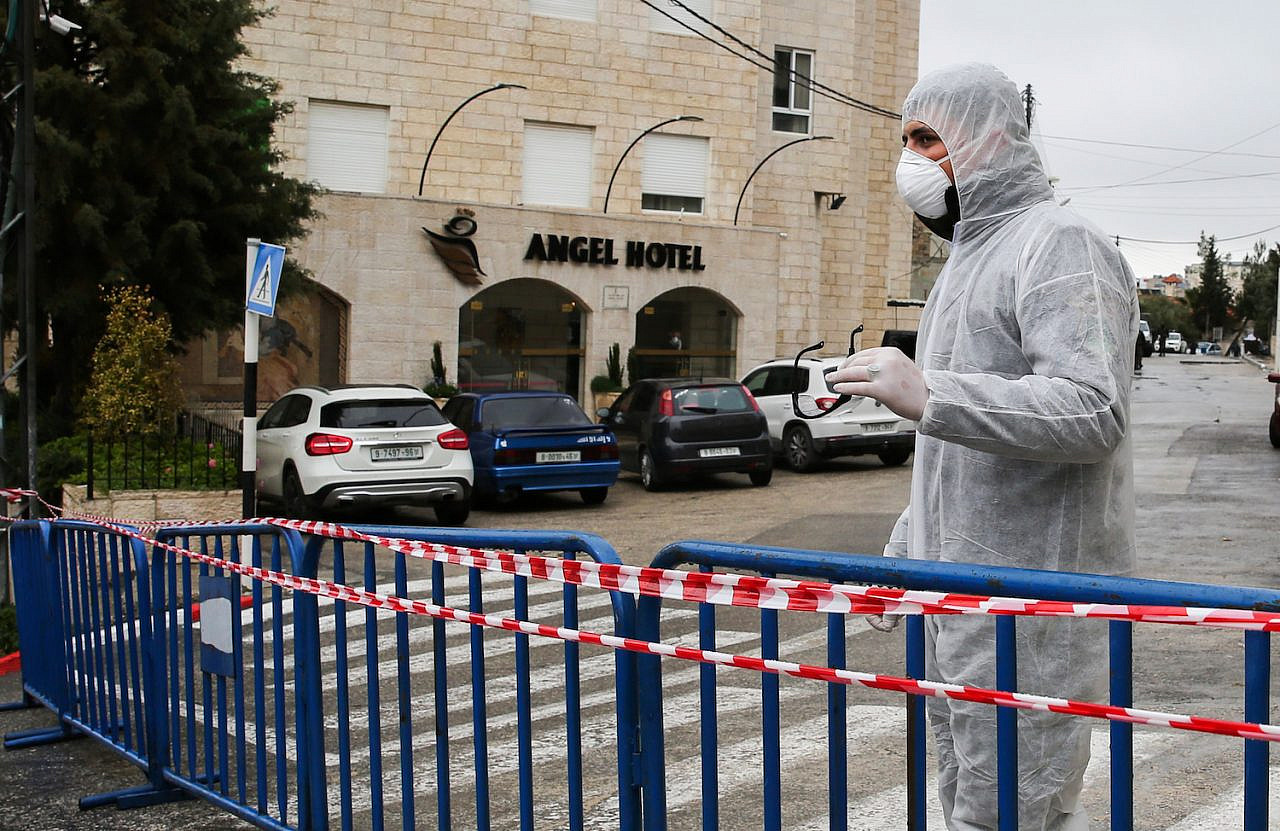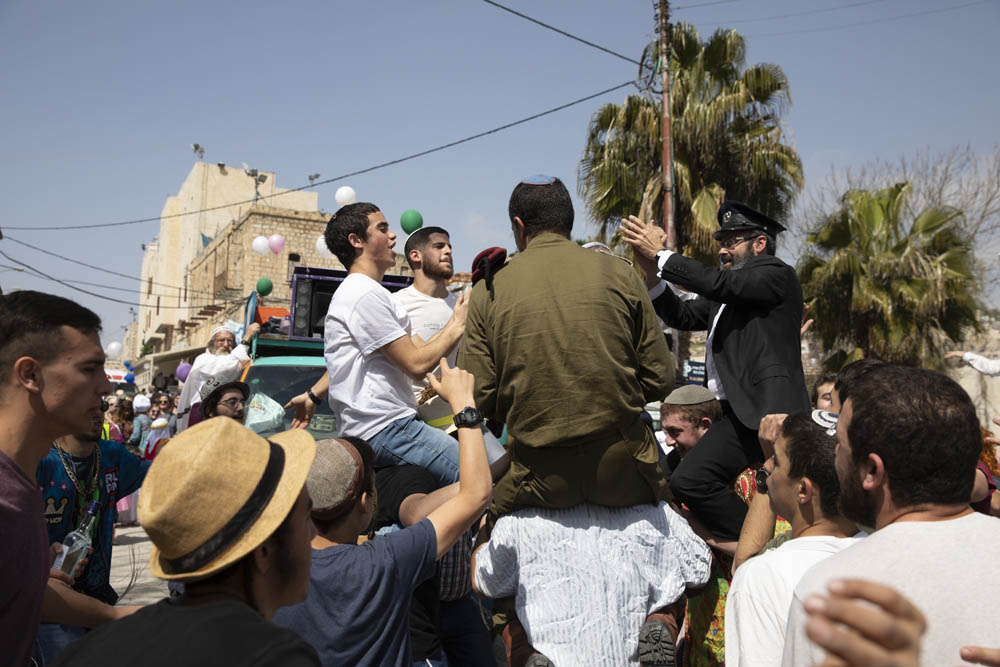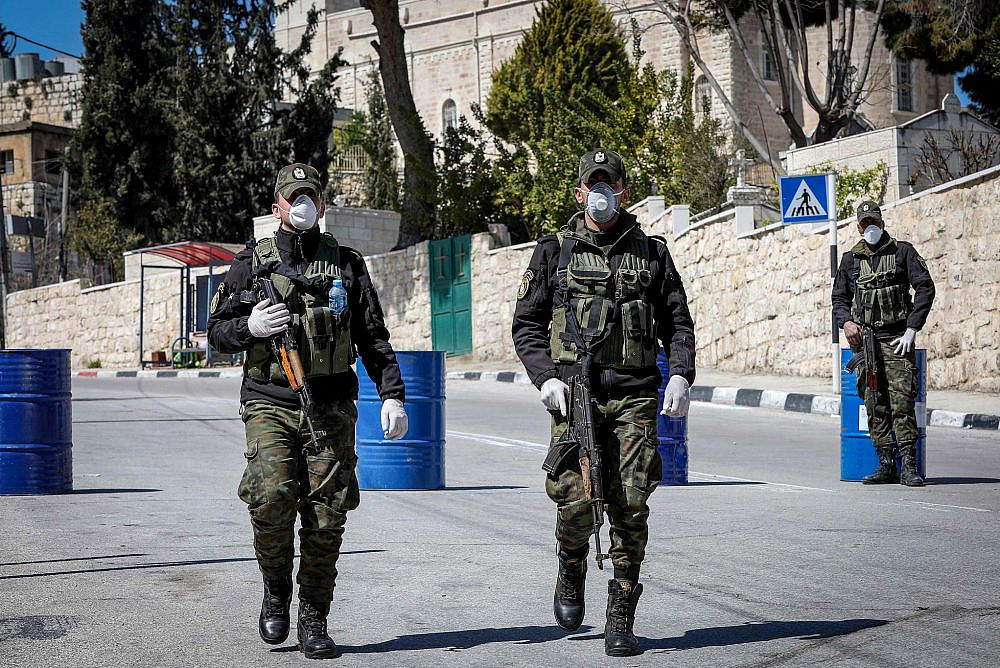Last Thursday, with both the coronavirus and Israeli political crises in full swing, temporary Defense Minister Naftali Bennett announced a full military closure on Bethlehem after a number of residents in the city were confirmed to have COVID-19. Three days later, the Health Ministry announced that anyone who had been in Bethlehem, Beit Jala and Beit Sahour was required to self-quarantine for two weeks.
Residents from those communities can no longer enter Israel, even though many of them work there. Among those now in quarantine after being in the Bethlehem area are some of my colleagues at the human rights organization Yesh Din.
On Sunday, Bennett announced he was considering a full military closure on all Palestinian cities in the West Bank as part of the fight against the coronavirus. Following a meeting with various ministers, generals, and other government representatives on Monday, however, Bennett walked back his statement and decided against sealing off the Palestinian Authority territories.
Similar instructions for closure and quarantine were not imposed upon Jewish neighborhoods in the Bethlehem area such as Gilo, located next to Beit Jala, or Har Homa, next to Bethlehem. Moreover, residents of Ashkelon, Jerusalem, Ariel, and Petah Tikvah — all cities with confirmed COVID-19 cases — have neither been placed under wide-ranging military enclosure, nor under quarantine (except for those currently sick).
In the Einav settlement in the northern West Bank, four people have tested positive for the coronavirus, and another 100 residents are in quarantine. This is almost 12 percent of the settlement’s residents, yet the settlement has not, at the time of writing, been put under closure. What is hard to do to Israelis is seemingly easy to do to millions of Palestinians living under the plague of Israeli occupation.
Meanwhile, the Health Ministry has apparently not accounted for the fact that Rachel’s Tomb, a popular Jewish pilgrimage site, is in the center of Bethlehem. Visitors to the site are not, for now, subject to the obligatory two-week self-quarantine for anyone who has been in the Bethlehem area. The tomb, which despite its location is on the Israeli side of the separation wall, is protected by a heavily secured entrance and is off-limits to Palestinians. On Monday night, a mass prayer for stopping the coronavirus pandemic was held at the site.

And on Tuesday, Israeli settlers in occupied Hebron were allowed to proceed with their yearly Purim celebration, in coordination with the Israeli military. The decision to allow this event to proceed in the center of Hebron is yet another illustration of the immense difference with which the Israeli government relates to the two populations living in the same territory.
The steps the Israeli government has taken to prevent the spread of the coronavirus are not disproportionate. Indeed, it seems as if the measures taken so far have been relatively successful in preventing an outbreak over the past few weeks.
But it must be remembered that the State of Israel, the army that controls the occupied territories, and we as a society, have the responsibility, required by international law and moral obligations, to protect the safety, security and health of all people under Israel’s control — including those living under Israeli occupation.
The global emergency caused by the coronavirus has presented the State of Israel with a test. Palestinians should not be perceived as a public which can be quarantined from Israelis via closure, siege, different laws, and bypass roads. Concerns for their health and their quality of life falls primarily on us, as the regime that is responsible for them.
Decisions to impose a full military closure on the occupied territories (excluding the settlements), or on areas of the territories, cannot be made when the primary consideration is the implications for the Israeli public and the Israeli economy — for example, loss of construction workers and human resources. Rather, such decisions must first answer ‘yes’ to the question: Would the same decisions be made were the affected population a Jewish one?

Moreover, Palestinians living in the West Bank are already living under a year-round military closure, and the vast majority of them are prohibited from entering Israel. Ordinarily, there are some Palestinian “exceptions” who hold temporary permits enabling them to enter Israel to work. However, even those with entry permits have been prohibited from entering Israel over the past few days due to the Purim holiday — which, as with every major Jewish holiday, has led to Israel completely sealing off the West Bank. And those Israeli settlers celebrating Purim in Hebron rejoiced on the very same streets that have been closed to Palestinians for a quarter of a century.
It seems that the same principles that have guided Israeli governments during 52 years of occupation — with its distancing, concealing, and dehumanization of Palestinians — continue to guide Benjamin Netanyahu’s government during a game-changing pandemic. Yet in contrast to these guiding principles, it has become even clearer that the space in which we live is a human web that cannot be artificially separated. This epidemic can be our opportunity to prove that we have not forgotten how to be human.
And perhaps, in the shadow of the coronavirus, the residents of Bethlehem and other cities under military enclosure will be free from nightly raids, surprise checkpoints, arbitrary arrest, military expeditions, and daily encounters with the occupying power.

